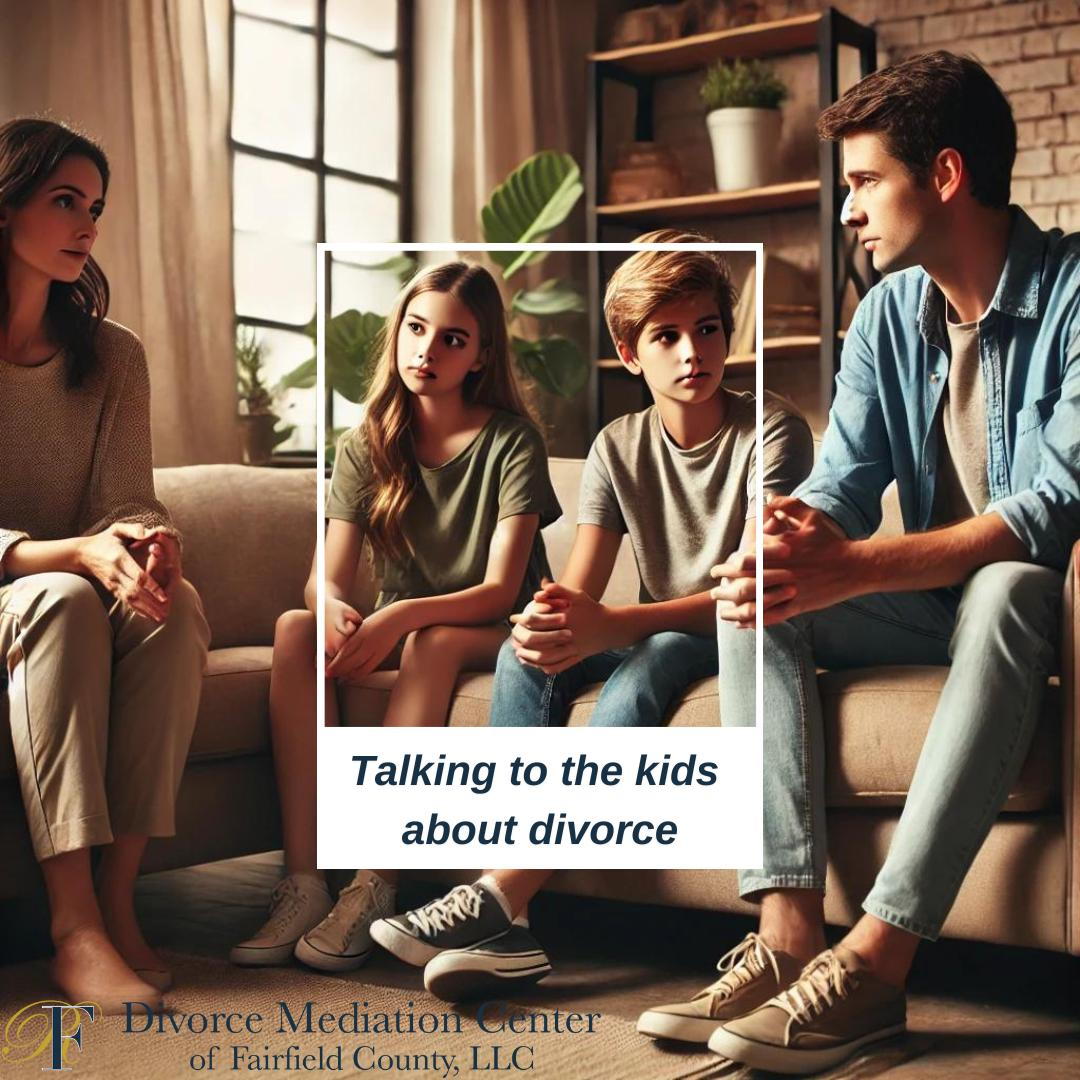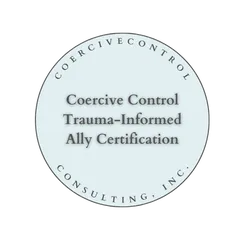Quick Contact
Please fill out the form below and our attorney will contact you.
Office Locations
Testimonials
Ratings & Reviews

- posted: Sep. 02, 2024
Telling your children that you’re getting divorced is one of the most difficult conversations a parent will ever have. The way you handle this conversation can significantly impact how your children cope with the news and adjust to the changes that follow. To help you navigate this process, consider the following information regarding how to approach the conversation based on your child’s developmental stage, when to tell them, what to say, and what not to do. Additionally, working with a co-parenting counselor can provide valuable guidance on how to communicate effectively with your children and ensure a supportive environment as you move forward
Toddlers and Preschoolers (Up to 5 years old)
What to Say: Children under five are not able to fully grasp the concept of divorce, but they will notice changes in their daily routine. The key is to keep your explanation simple and concrete, focusing on what they will directly experience, such as where they will live and that both parents will continue to care for them.
Example: "Mommy and Daddy are going to live in different houses, but we both love you very much and will always take care of you."
Timing: Young children have a limited understanding of time, so it’s best to tell them just a few days before the physical separation happens. This minimizes confusion and anxiety as they are unable to process long term changes.
Emotional Support: Provide plenty of physical comfort, such as hugs and reassurance. Maintaining a consistent routine will help your child feel secure during this confusing time.
What Not to Do
Do Not Overwhelm with Details: Avoid discussing complex aspects of the divorce, which will only confuse them.
Do Not Badmouth the Other Parent: Keep the conversation positive to prevent any feelings of divided loyalty or confusion.
Early Elementary (Ages 6-8)
What to Say: Children in this age group begin to understand the concept of divorce but may internalize guilt, mistakenly believing that they are somehow to blame. It’s crucial to clarify that the divorce is not their fault.
Example: "Mom and Dad have decided to live in different homes because we think it’s best for our family. This isn’t because of anything you did. We both love you very much and will always be here for you."
Timing: It’s best to inform children in this age group once the decision is final but before any significant changes, such as moving out, occur. This allows them time to process the information without being overwhelmed.
Emotional Support: Encourage your child to ask questions and express their feelings. Be patient and reassuring, emphasizing that both parents will continue to be involved in their lives.
What Not to Do
Do Not Share Inappropriate Adult Details: Avoid explaining the reasons for the divorce in terms that are too complex or involve adult issues like finances or infidelity.
Do Not Expect Immediate Acceptance: Children may need time to process the news and might react with sadness, anger, or confusion. Allow them to work through their emotions at their own pace .
Older Elementary and Preteens (Ages 9-12)
What to Say: Older children and preteens can understand the permanence of divorce and might worry about how it will affect their daily lives. They may also experience a range of emotions, from anger to anxiety.
Example: "We’ve decided that living apart is the best decision for our family. We know this is hard, but we want you to know that we both love you and will continue to take care of you, even though we’ll be living in different houses."
Timing: Experts recommend telling children in this age range a few weeks to a month before significant changes happen. This gives them time to process the information and adjust emotionally.
Emotional Support: Validate their feelings and reassure them of your continued love and presence in their lives. Encourage them to share their thoughts and concerns openly.
What Not to Do
Do Not Make Children Choose Sides: It’s essential to avoid placing children in a position where they feel they must choose between parents, which can cause emotional distress .
Do Not Use Children as Messengers: Keep adult conversations between adults and avoid using your child to relay messages or gather information from the other parent .
Teenagers (Ages 13-18)
What to Say: Teenagers can understand the complexities of relationships and divorce, but they may also react strongly, potentially feeling anger, betrayal, or sadness. It’s important to have an honest conversation that respects their maturity.
Example: "We’ve decided that it’s best for our family if Mom and Dad live in separate houses. This isn’t an easy decision, and we know it’s going to be a big change, but we both love you and will continue to be your parents."
Timing: For teenagers, it’s advisable to tell them about a month or more before the changes take place. This gives them ample time to process the information, ask questions, and discuss their feelings with both you and their peers.
Emotional Support: Allow them space to process the news, but make sure they know you are available to talk whenever they are ready. Encourage open dialogue and be prepared for a range of emotional responses .
What Not to Do
Do Not Display Extreme Emotional Distress: While it’s okay to show that you’re affected by the divorce, extreme displays of anger or sadness can frighten teenagers and make them feel responsible for comforting you .
Do Not Promise Outcomes You Cannot Guarantee: Be honest about the uncertainties and avoid making promises that you may not be able to keep, such as specific custody arrangements that haven’t been finalized .
General Guidelines on Timing and Behavior
Unified Approach: Whenever possible, both parents should deliver the news together. This helps to reduce anxiety and presents a sense of unity and stability.
Avoid Surprises: Don’t wait until the last minute to tell your children about the divorce, but also avoid telling them too far in advance. The goal is to give them enough time to process the information without causing prolonged stress.
Choose the Right Moment: Pick a time when your child is calm, rested, and not preoccupied with other concerns, such as during a quiet weekend morning.
Conclusion
Telling your children about divorce is a process that requires sensitivity, timing, and a clear understanding of their emotional and developmental needs. By carefully planning what, when, and how to share this lifechanging news, and by avoiding common pitfalls, you can help your children navigate this challenging transition with resilience and support. Always consider seeking advice from child psychologists or family therapists to guide you through these conversations and to provide ongoing support to your children.
References
Ovia Health: "How to Tell Your Child You’re Getting Divorced"
Psychology Today: "How to Tell the Kids You’re Getting Divorced"
Choosing Therapy: "12 Tips for Telling Your Kids About Divorce"
American Academy of Pediatrics: "Helping Children Through Divorce"
Dr. Lisa Herrick: "The Do's and Don'ts of Telling Kids About Divorce"
Journal of Family Psychology: "Impact of Parental Conflict on Children"
American Psychological Association: "Parenting After Divorce"
Child Mind Institute: "How to Talk to Kids About Divorce"
Dr. M. Gary Neuman: "Helping Your Kids Cope with Divorce"
Child Mind Institute: "Managing Your Own Emotions During Divorce"
National Association of School Psychologists: "Supporting Children After Divorce"












